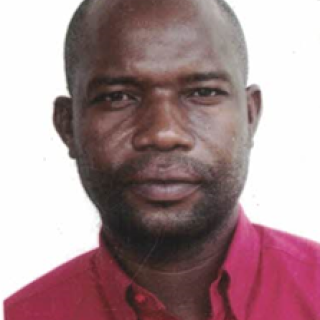Alexis Marboua was born on 4 March 1974 in Bekila, a village in the north-western part of the Central African Republic (CAR). He attended primary school first at the Ecole fondamentale de Béogombo II in Paoua subprefecture, and then at a co-educational school in Bossembele subprefecture, finishing in 1987. He went to high school at the Lycée des Martyrs in the capital Bangui and entered the University of Bangui in 1999, receiving his nursing diploma four years later. During his studies, he received hands-on training at the Bangui National University Centre, the Bangui Community Hospital and the city’s Amitié Hospital. His final pre-graduation training was at the Berberati Regional University Hospital in Mambéré-Kadéï subprefecture.
After graduating, Alexis held a number of interim positions – including in urgent care and paediatrics – and participated in several health-related projects, in north-western CAR. He held various levels of responsibility in these roles, working as an external consultant in Batangafo, for example, and serving as the head of a health centre assisting displaced people and refugees in Moyenne Sido. Alexis was passionate about the idea of working in the humanitarian sphere and committed to helping others. For around eight years, he was employed as a nursing consultant by international humanitarian organizations in conflict-affected zones: he worked with the French section of Médecins Sans Frontières (MSF) from April 2006 to June 2007, and with MSF’s Spanish section from October 2007 to 2014. During this period, he also completed a course on sexual violence against women and children.
He spoke French and Sango, together with some English, Arabic and two Fula dialects; in his spare time, he enjoyed playing football and basketball.
The ICRC hired Alexis in June 2016 as a medical assistant based at the subdelegation in Kaga-Bandoro, a town in the centre of the country. It was a time of great instability and insecurity in the Central African Republic, as internal conflict surged in the wake of the presidential election earlier in the year. Numerous incidents of indiscriminate violence took place in Kaga-Bandoro in September and early October 2016, with armed groups attacking civilians and civilian targets, including government offices, NGOs and schools. On 12 October, Alexis fell victim to one such attack on his way to work, although the exact circumstances of his death are unclear. His body was found the following day. He was 42 years old and the father of seven children.
Alexis’s death was tragic and senseless. In a country plagued by internal strife and uncertainty, he was devoted to improving the lives of others. His dedication as a humanitarian health worker continues to serve as an example for others to follow.
